- Home
- Dustin Stevens
Motive Page 2
Motive Read online
Page 2
“Doctor Saiki is in the basement. I told him you were coming.”
There was no doubt it was the same voice Danilo had heard over the intercom a moment earlier.
Without speaking, Danilo lowered the top of his head in acknowledgement and stepped inside. It was not the first delivery he had made, his feet carrying him through the deserted first floor, past the fully furnished rooms that served only as a decoy.
To his knowledge, not once had the couches ever been sat on. Never had he seen anybody use the kitchen.
Stepping down the main hallway, Danilo nudged open a door and took a stairwell into the basement. As he descended, the temperature dropped considerably, the dry-wall and carpet around him changing over to stainless steel and tile.
What was on the first floors a warm and welcoming home served as window dressing to a state-of-the-art basement laboratory. The first time Danilo was shown around, his jaw dropped at the expansive assembly before him.
Now, it didn’t even register.
A wall of glass separated the stairwell from the rest of the lab, a single door in the middle cased in steel. Danilo walked directly to it and pressed the air release with his elbow, the package still resting atop his hands. The sound of air escaping filled his ears as the door popped forward an inch, his foot catching it and dragging it open so he could step through.
“Mr. Cruz,” a familiar voice said as he entered, “how good of you to stop by.”
The right corner of Danilo’s mouth turned up in a smirk that resembled a snarl. “Would you be saying that if I had arrived empty handed?”
A thin man in a white coat turned from the table he was working at and laughed, the movement throwing his face towards the ceiling. “My friend, there’s no point in even considering such a thing. You’ve never once arrived empty handed.”
He peeled off a pair of latex gloves and dropped them on the table, walking towards Danilo with a hint of a smile on his face.
Dr. Yuto Saiki was a research scientist brought in specifically from Tokyo for the project several months before. Standing just a few inches above five-feet tall, he wore thick-framed glasses beneath a thatch of black hair. His age was almost undetectable, save a few stray grey hairs and a couple of smile lines developing around his mouth and eyes.
Upon first meeting one another, a heavy wariness existed between the two men that over time had ebbed away, both given to appreciate the way with which the other performed their tasks.
While each possessed very different skill sets, both valued the efficiency their counterpart displayed.
“What have you got for me tonight?” Saiki asked, rubbing his palms together in anticipation.
Danilo nodded towards an empty steel table to the right and asked, “Same place?”
Saiki extended a hand towards it and nodded. “Of course, of course.”
With practiced movements, Danilo laid the makeshift bundle down and slid his hands from beneath it. He took a step back and waited as Saiki pulled on a fresh pair of gloves and took up a set of surgical shears.
Starting at the end closest to him, Saiki snipped a small horizontal cut into the sack and inserted one blade of the shears. In even clips he extended the cut the length of the bag before tossing the instrument aside and peeling back the flaps.
The pungent aroma of blood and amniotic fluid seeped into the room as Saiki cut the flaps away and examined the specimen before him.
Lying flat on its back was the lifeless form of a fetus, somewhere in third trimester. There was no hair on its head, almost no visible way of determining gender, but there was no mistaking the miniature form as it lay unmoving.
All four limbs were coated in bodily fluids, splotches of blue visible beneath its translucent skin. Heavy maroon streaks striped the figure, the result of blood starting to settle and pool.
Lying on its stomach in a coiled heap like a snake preparing to strike was the umbilical cord, the entire thing intact.
Danilo watched with partial detachment as Saiki examined the form, his mouth peeling back into a smile, his tongue running out over his bottom lip in anticipation.
“Oh, yes,” Saiki muttered. “Yes, this will do nicely.”
The scientist’s unnatural proclivity for the macabre was one of the few things Danilo genuinely hated about the man.
Danilo waited another moment, watching the scene with his arms folded across his chest, his face twisted up in disdain. When it became too much to stomach any longer, he cleared his throat and asked, “So, we good here?”
“Oh, yes,” Saiki said, bobbing his head for emphasis. “Yes, indeed. Thank you so much, Mr. Cruz.”
The comment drew another eye roll from Danilo. He dropped his arms to his sides and retreated a step, content to leave the good doctor behind to do his work.
Despite the recent change in his job description, death and all the various accoutrements that came with it did nothing to rattle Danilo. Seeing a grown man revel in it like a child on Christmas morning was quite another matter.
“Alright,” Danilo said. “If you need any more, you know where to find me.”
“Yes,” Saiki said absent-mindedly as Danilo turned for the door. His hand made it as far as the handle before the doctor called out to him, stopping his progress where he stood.
“Actually, Mr. Cruz, I was hoping you could get me something a little different this time,” Saiki said.
The comment drew Danilo’s brow into a knot as he turned and motioned for the man to continue.
Saiki pushed himself away from the table, walking a step or two forward, the shears back in his hand. “Well, this is quite wonderful,” he began, motioning to the fetus behind him, “but it can be somewhat limiting.”
The answer did nothing to unfurl Danilo’s look of uncertainty. “Okay?”
“Teeth,” Saiki said, tossing the word out casually.
“Teeth?” Danilo repeated.
“Yes,” Saiki said. “A few dozen or so. No more than a couple children should be sufficient to get me started.”
The look of confusion grew even more pronounced on Danilo’s face. “Children?”
“Yes,” Saiki replied, adding an elongated nod. “Somewhere between four and seven if possible. After they lose their baby teeth, they’re of no use any longer.”
Unsure of where to even begin asking questions, Danilo shook his head and turned back for the door. It was late and his body was beginning to come down off the adrenaline surge of earlier. He rubbed his hands once over his face and nodded. “When do you need them by?”
“A few days?” Saiki asked.
“That should be doable,” Danilo said, pushing his way through the air-locked door without waiting for a response. Underfoot the stairs shifted from tile back to carpet, the stairs creaking beneath his weight as he ascended.
“Children’s teeth,” Danilo muttered, shaking his head as he made his way towards his truck waiting outside.
Chapter Three
“This is bullshit! Bullshit!”
The sound passed through the thick wooden door as if it wasn’t even there. It was an angry, hostile voice that rolled out over the fifth floor of the state capitol, followed a moment later by the muffled sound of something being knocked to the ground.
Walter Tseng paused a moment outside the front entrance to the governor’s office and took a deep breath, letting his shoulders rise and fall with the effort. Already he could feel the prickly sensation of heat and perspiration rising on his scalp, his body’s natural defense to what waited on the other side.
With every particle of his being telling him not to, he raised his fist and rapped his knuckles against the door.
“Get in here!” the same voice snapped.
Tseng shook his head in disgust and pushed inside, the floor-to-ceiling door heavy as he pressed his forearm against it and forced it into the room. Light spilled out onto the darkened fifth floor, throwing his shadow against the ground as he entered, the image swallowed back up as it swung closed behind him.<
br />
Despite being the Chief of Police, it was only the third time Tseng had ever been inside the office. The first was a photo opportunity with the newly-elected governor three years before, the kind of event where everybody smiles through gritted teeth and shakes hands a little harder than necessary.
The standard round of dick-measuring exercises that politicians felt the need to perform as often as possible.
The second time was a year and a half prior, a perfunctory briefing about an outbreak of food poisoning in the local school systems. The governor had handled the entire thing with as much disdain and boredom as he could manage, making it quite clear that the event was nothing more than checking off a box in case somebody ever asked what he had done to help the situation.
What he also managed to do was earn himself the ire of Tseng and every other person in the room that wasn’t paid to kiss his ass. Still an underling at the time Tseng wasn’t in a position to make such feelings known, but he made no attempt to hide them to anybody that asked.
The office was exactly the same as Tseng remembered it from his previous two encounters. The carpet underfoot was thick, cream in color, not a stray mark of any kind visible. An oversized desk sat to the right, so large it resembled a conference table more than a workspace for a single man.
Across from it was a pair of plush leather sofas, facing each other with a coffee table splitting the space between them. Glass cases lined the outside of the room, all featuring relics of Native Hawaiian culture ranging from baskets woven from the stalks of Ti leafs to handheld weapons from centuries past, their wood polished to a gleam, lined with razor-sharp shark’s teeth.
Inside the room were four men, all standing, all staring back at Tseng. In the corner was another of Duke’s security detail, wearing sunglasses with his hands clasped in front of him. Approaching six feet in height, he was a little thinner than the others downstairs, but no less imposing.
To the far left stood Tim Hall, the governor’s Chief of Staff that had called Tseng forty-five minutes earlier. He too was dressed in an aloha shirt and chinos, his thinning red hair combed straight back. Freckles dotted his thin arms and face, a veneer of sweat visible beneath the overhead lights.
Despite being just over forty years in age, he seemed to be trembling like a frightened child.
In the middle of the room was Allen Wong, a man Tseng had only met once before but knew to be the governor’s Senior Policy Advisor. He stood with his hands thrust into the front pockets of his grey slacks, accentuating the stomach that protruded before him. His face was round and puffy, forcing his eyes down to almost slits. Thick dark hair sat in a loose snarl atop his head, streaks of grey just starting to show.
He nodded to Tseng in recognition, the movement devoid of any emotion one way or another.
Completing his sweep of the room, Tseng settled his gaze on the governor, alone behind his desk.
Even if they had never met before, two things would have immediately made it clear who he was as Tseng entered. The first was that while everybody else was dressed in work attire, the governor looked no more than two minutes removed from bed. A ragged grey bathrobe hung from his shoulders, swinging free atop a pair of blue boxer shorts and a plain white t-shirt.
The few remaining tufts of white hair he had stuck up in various directions above a pinched face with a pointed nose and chin. His cheeks glowed bright red, taking his usual ruddy complexion and enhancing it with a healthy dose of anger.
The second indicator that he was The Honorable Governor Dwight Randle was that no less than three portraits around them proclaimed as much. As Tseng cast a quick glance about the room, he couldn’t help but notice they were in fact the only décor of any kind on the walls.
Randle stood in silence a moment, his breath coming in heavy pants. His desk chair sat upside down on the floor beside him, the source of the noise Tseng heard just before entering. “What took you so long?”
The animosity Tseng felt for the man ratcheted up another notch, but he managed to swallow down the retort in his mind. He paused a full beat before deciding to ignore the question and pose one of his own. “Who is she?”
He positioned himself so he could see all three men in his peripheral vision, though it took only a moment to realize that wouldn’t be necessary. Hall’s gaze never left his shoes and while Wong made eye contact, it was apparent he had no intention of speaking.
This was the governor’s show. They had just been called in to bear witness.
“How the hell should I know?” Randle snapped. “Forty-five minutes ago I was asleep in my specially-designed Posturpedic bed. Now I’m standing here at two in the morning talking to you twits.”
The itching sensation returned to Tseng’s skin, this time a product of animosity more than trepidation. Once more he forced back the vitriol fighting its way to the surface. “Why haven’t the police been called?”
The governor made an exaggerated expression and shook his hand at Tseng. “They have been. Who the hell do you think you work for?”
Moisture formed along Tseng’s lower back and across his lip. “I mean, why weren’t officers called to secure the area? Why isn’t a crime scene unit going over everything as we speak?”
The governor looked at Tseng in disbelief a moment before sighing and bending at the waist. With a low wheeze of exertion he righted his desk chair and flopped himself down into it, the force pushing it several inches across the floor.
“Christ, you don’t know anything about politics do you?”
Tseng cast a glance to Hall before moving back to Randle. “Apparently I don’t, but I assume I was called here about a murder, not politics.”
At the mention of the word murder, Randle winced and leaned forward in his chair. He extended a finger straight out at Tseng and said, “That’ll be enough of that, in this office or anywhere else. For all we know, that is a suicide down there.”
Tseng’s head rose an inch as he smirked, trying to keep his face from breaking into a full smile. “A suicide? Really?”
The governor opened his mouth to respond, but Wong interjected with a question first, drawing the attention of the other four men in the room.
“What makes you say it was a murder?”
“Given the thirty seconds I had to examine the scene?” Tseng asked, cutting his gaze to Randle so there was no mistaking where his frustration was aimed.
“See,” the governor snapped, waving dismissively at Tseng, “he already admits he’s had less than a minute to review things. He has no idea what’s down there. That girl committed suicide, plain and simple.”
Tseng pushed forward without even acknowledging the statement.
“Based on my preliminary assessment, she had to have been murdered somewhere else and the body dumped here.”
“Reason being?” Wong asked again.
“For starters, there’s no blood,” Tseng replied. “There are two vicious slashes to that girl’s body, one across her throat and another across her abdomen. Those are two of the heaviest blood-flow areas in the body. Had those wounds been inflicted on site, there would literally be liters of blood on the ground around her.”
“You don’t know those wounds were the cause of death,” Randle snapped. “She could have been a jumper.”
Tseng rolled his eyes, letting the momentum of the movement carry his attention back to the governor.
“Ignoring the fact that every possible route to the fifth floor is locked at this time of night, save a possible broken leg there are no signs of impact. A fall from five floors onto concrete would have split her head like a melon and snapped most of the bones in her body.
“I’m sorry Governor, but this was a murder and needs to be treated as such.”
Randle leaned back in his chair and stared across at Tseng, the anger receding from his features, taking a bit of the red hue with it. He rested his head against the chair and closed his eyes, shaking his head from side to side.
Tseng watched him a moment b
efore shifting his attention to Wong. “But what does that have to do with politics? And why isn’t a tech unit on site yet?”
“It has everything to do with politics,” Randle said from across the room without opening his eyes. “And there will be no tech unit. You have the next few hours to ascertain everything you can, and after that the scene will be scrubbed clean in time for a new day here at the capitol.”
“What?” Tseng spat, incredulity permeating the word.
When the governor made no movement of any kind, Tseng looked to Wong and then Hall and back again. “What do you mean there will be no investigation? No processing the scene?”
Tseng added as much acrimony as he could to the tone of his voice, finally drawing Randle’s attention enough to open his eyes.
“What you don’t seem to understand is that this is the state capitol building, in the middle of a legislative session, three months away from a very heated gubernatorial primary election.”
Tseng’s eyes bulged. “You think that down there was done because it is election season?”
“Of course it was,” Randle said, his own voice rising. “You think it is just coincidence that a pretty young blonde girl was found directly beneath my office? She is there because somebody is trying to jumpstart a political scandal right before the polls open. And I’ll be damned if I let that happen.”
Randle pushed himself up from his chair and walked forward, putting his fists down on the desk. He leaned forward onto them, staring at Tseng, the bathrobe hanging down on either side of his torso.
“So here’s how this is going to go. You, and you alone, are going to go back downstairs and get everything you can from that scene. You can take notes, but I get copies of everything, and they are to be shared with nobody in HPD, FBI, CIA, anybody.”
Tseng sighed and rolled his head to the side. The odds of that young girl being something that any of the alphabet agencies would be interested in was just one more example of Randle’s extreme overestimation of his own importance.
“And then what?” Tseng asked. “I wage a one-man investigation?”

 Liberation Day - A Thorn Byrd Novel
Liberation Day - A Thorn Byrd Novel Fair Trade
Fair Trade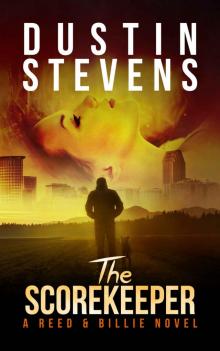 The Scorekeeper
The Scorekeeper Wild Fire: A Suspense Thriller (A Hawk Tate Novel Book 6)
Wild Fire: A Suspense Thriller (A Hawk Tate Novel Book 6)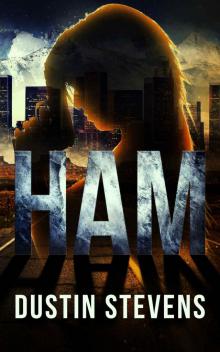 Ham
Ham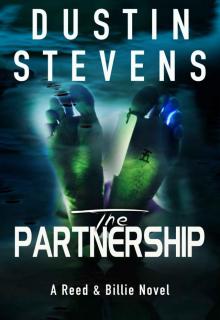 The Partnership
The Partnership Justice
Justice The Subway
The Subway The Promisor: A Suspense Thriller
The Promisor: A Suspense Thriller Home Fire: A Suspense Thriller (A Hawk Tate Novel Book 5)
Home Fire: A Suspense Thriller (A Hawk Tate Novel Book 5) The Bear
The Bear Battle Cry
Battle Cry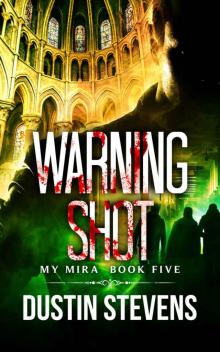 Warning Shot
Warning Shot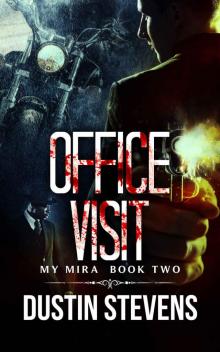 Office Visit
Office Visit The Kid: A Suspense Thriller (A Reed & Billie Novel Book 3)
The Kid: A Suspense Thriller (A Reed & Billie Novel Book 3)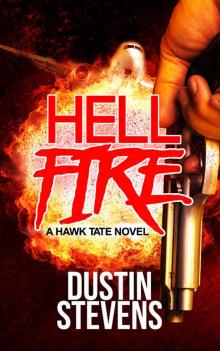 Hellfire: A Suspense Thriller (A Hawk Tate Novel Book 4)
Hellfire: A Suspense Thriller (A Hawk Tate Novel Book 4) Motive ; One Last Day ; Going Viral
Motive ; One Last Day ; Going Viral The Subway ; The Debt ; Catastrophic
The Subway ; The Debt ; Catastrophic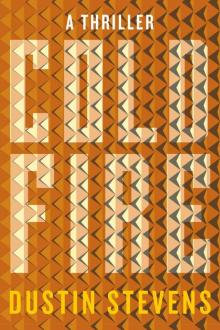 Cold Fire
Cold Fire Dead Peasants (Zoo Crew series Book 2)
Dead Peasants (Zoo Crew series Book 2) Thriller Box Set One: The Subway-The Debt-Catastrophic
Thriller Box Set One: The Subway-The Debt-Catastrophic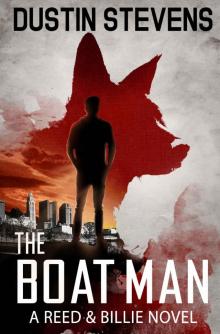 The Boat Man: A Suspense Thriller (A Reed & Billie Novel Book 1)
The Boat Man: A Suspense Thriller (A Reed & Billie Novel Book 1) The Zoo Crew (Zoo Crew series Book 1)
The Zoo Crew (Zoo Crew series Book 1)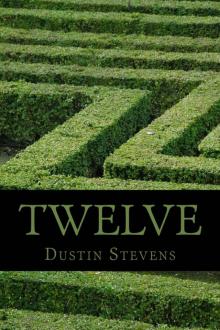 Twelve
Twelve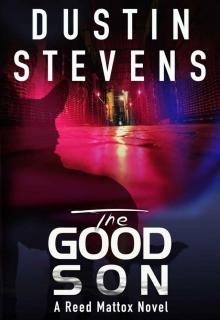 The Good Son: A Suspense Thriller (A Reed & Billie Novel Book 2)
The Good Son: A Suspense Thriller (A Reed & Billie Novel Book 2) The Boat Man: A Thriller (A Reed & Billie Novel Book 1)
The Boat Man: A Thriller (A Reed & Billie Novel Book 1)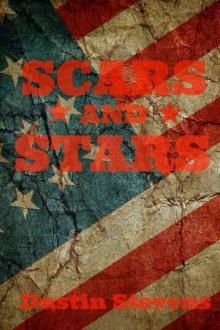 Scars and Stars
Scars and Stars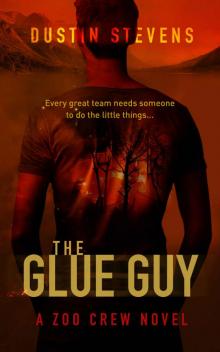 The Glue Guy: The Zoo Crew Series Book 4
The Glue Guy: The Zoo Crew Series Book 4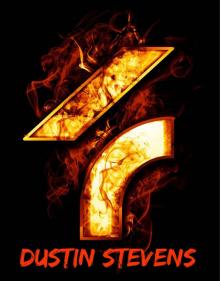 Four
Four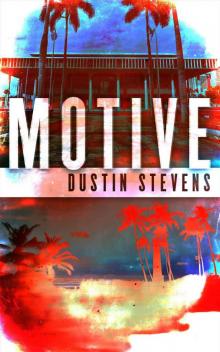 Motive
Motive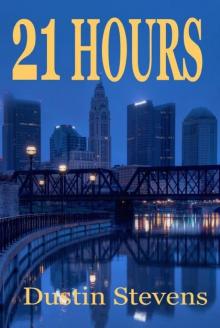 21 Hours
21 Hours Krokodil
Krokodil Ohana
Ohana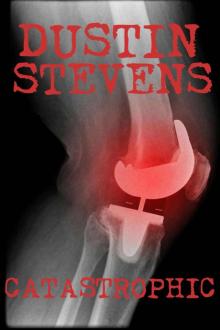 Catastrophic
Catastrophic Just A Game
Just A Game Quarterback
Quarterback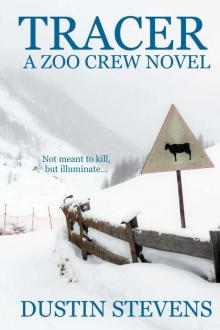 Tracer
Tracer Fire and Ice: A Thriller (A Hawk Tate Novel Book 3)
Fire and Ice: A Thriller (A Hawk Tate Novel Book 3)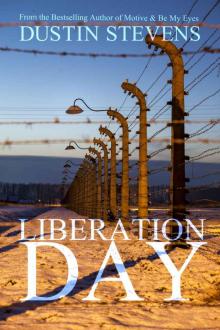 Liberation Day
Liberation Day